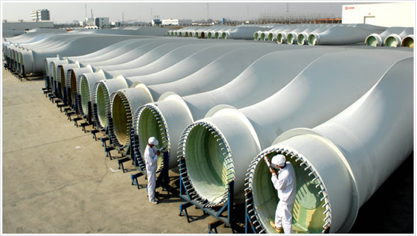
To address the dependence of our societies on fossil fuels will be an enormous undertaking, despite the recent re-appearance of often well-meaning analyses and reports emphasizing how comparatively easy and inexpensive it will be. The physical dimensions of this still mostly-future undertaking are often downplayed or misunderstood. Taken together, effective climate action will be made up of a series of interacting, at points interwoven, simultaneous, sometimes very large, building projects to achieve the outcomes we desire and require. As the outcome, the stabilization of the global climate, is a unitary outcome, these building projects can also be understood for some purposes as a single immense building project. As in all building or manufacturing projects, many costs will be incurred upfront for some immediate benefits in terms of employment and the sales of materials but many more of the benefits will be enjoyed years and decades down the road. Furthermore. those additional benefits associated with climate change will be very great and enjoyed still further down the road with an indeterminate but large monetary valuation.











